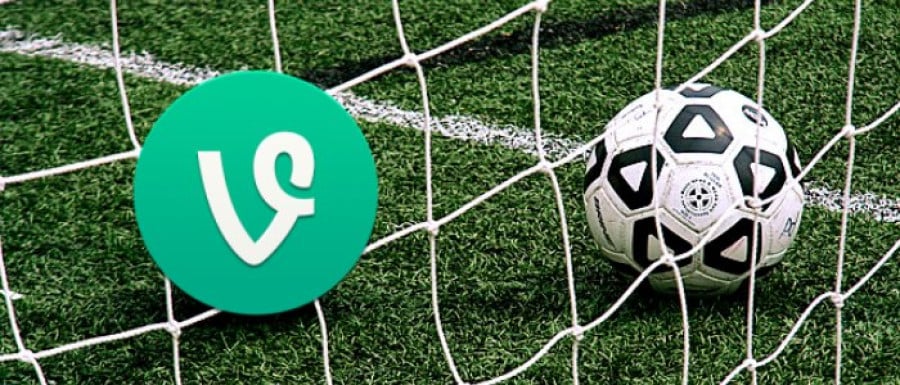Digital and social media rights: Can the fans be forced to take down online goal videos and should they be?

As the long, dark 33 days without top class football between the World Cup final and the start of the Premier League season finally ended on 16 August, football fans' excitement was arguably muted by an announcement from the Premier League that it was going to "clamp down on fans posting unofficial videos of goals online"1.
One of the noticeable online trends of the World Cup this summer was the saturation of unofficial clips of goals posted online by people simply watching games on their TV at home. If you were not fortunate enough to see James Rodriguez's stunning turn and volley for Colombia against Uruguay, no doubt you were able to catch a clip of it on your mobile moments later on Vine or Twitter.
Whilst the instant accessibility of content is no doubt a positive for the fan, it presents a problem for rights holders looking to (a) protect the inherent value in the rights they own; and (b) chase that elusive pot of gold at the end of the digital rights (as opposed to traditional broadcast) rainbow. The Premier League is in the middle of a three-year deal with News International worth £20 million which allows News International titles to present near-live clips of key moments in Premier League matches2. These clips are placed behind a pay wall by News International but, with consumers able to access free unofficial clips on social media platforms, the value of these rights to both News International and the Premier League is in danger of becoming significantly diluted. Immediate access to highlights could also affect the value of the Premier League's £3 billion broadcasting deals with Sky and BT.
With the possible consequences this issue could have, Dan Johnson, the Premier League's Director of Communications, speaking to the BBC's Newsbeat programme on 15 August 2014 said, "it's a breach of copyright and we would discourage fans from doing it, we're developing technologies…to curtail this kind of activity"3.
However, is posting video clips online that you record on your mobile device actually a breach of copyright law?
The law in England and Wales
The first important distinction to make when assessing whether posting clips of goals online is a breach of copyright is between clips recorded of footage being broadcast on television or via other media technologies and video recorded at the stadium.
Video recorded at the stadium: no copyright in a football match
It is long established case law in the UK that there is no property in a sporting event per se. It was Latham CJ that said in the Australian High Court case, Victoria Park Racing and Recreational Ground Ltd vs. Taylor (1937)4 (where the defendants erected scaffolding on a property adjacent to a racecourse from which they broadcast commentary of proceedings on the radio, and still the leading authority on the point today) that, "a 'spectacle' cannot be 'owned' in any ordinary sense of the word". Indeed, in the modern day equivalent of Victoria Park Racing, BBC vs. Talksport5 [2001], where Talksport Radio broadcast commentary of the 2000 European Championships from a hotel room 'off-tube' by watching television coverage, whilst advertising their commentary as 'live'. The absence of any proprietary right in a sporting event resulted in the BBC's only cause of action being a claim of passing off based on the alleged misrepresentation of the commentary being 'live'. In relation to copyright, Talksport's radio broadcast was considered an independent work which had not infringed any content of the host feed.
This principle was affirmed in the most recent and important UK focused case dealing with the broadcasting of football matches in the UK in the Court of Justice of the European Union (CJEU) decision of 2011 in the joined cases Cases C-403/08 and C-429/08: Football Association Premier League Ltd & others vs. QC Leisure & Others / Karen Murphy vs. Media Protection Services Ltd6 (the FAPL Case). The CJEU’s judgment followed a referral from the UK High Court on a number of questions relating to the broadcasting of football matches in the UK. The CJEU held that "[The Premier League] cannot claim copyright in the Premier League matches themselves, as they cannot be classified as works". Member States are, however, permitted to accord other forms of protection to football matches, including:
"protection conferred upon those events by agreements concluded between the persons having the right to make the audio-visual content of the events available to the public and the persons who wish to broadcast that content to the public of their choice".
As there is no copyright in the live sporting action itself, arguably where a person films a goal on their mobile phone whilst in the stadium they may not be infringing anyone's copyright. The Premier League could potentially allege infringement of other elements contained in the recorded footage, for example inclusion of any advertising banners, player badges, Premier League logos, etc. However, such inclusion could be considered incidental under section 31 of the Copyright, Designs and Patents Act 1988 (CDPA)7 if it was mere "background".
So, how can the Premier League prevent fans recording clips of footage with their mobile devices whilst attending matches and posting them online? Due to the lack of copyright protection in a live sporting event, the basis for rights holders granting rights in such sporting events has always been the laws of contract, tort and real property that allows an organiser to claim control and possession of a ground. This has been referred to as the "keys to the gate" concept. In this case, the Premier League (as rights holder) could assert its ownership by imposing contractual restrictions (contained within the tickets’ express terms and conditions) on spectators. However, whilst Manchester United has recently banned spectators bringing tablets into Old Trafford, it seems unrealistic to ban fans bringing their smart phones to matches. The Premier League could, instead, ban the uploading of footage taken at the stadium through contractual ticketing restrictions but enforcing the restriction, particularly before any footage appears online, would appear difficult.
Copyright in the recorded footage
The situation is different however, where an individual records the goal from a screen (i.e. a broadcast of the event in question at the stadium or otherwise). In the FAPL case, the CJEU held that the Premier League could assert copyright in works contained within broadcasts (e.g. graphics such as the Premier League logo and music contained within the footage).
In addition, the broadcasters of the original footage can assert various rights in respect to their broadcasts, including: (a) the right of communication to the public (section 16(d) of the CDPA8); (b) fixation of their broadcasts under Article 7(2) of Directive 2006/115/EC9 (the Related Rights Directive); and (c) the right to reproduce fixations of their broadcasts under Article 2(e) of Directive 2001/29/EC10 (the InfoSoc Directive).
Where copyright subsists, anyone that exercises any of the "acts restricted by the copyright in the work" (i.e. copying, selling, broadcasting etc.) with respect to the “whole or any substantial part"of the work infringes copyright.11 It is arguable whether a 30-second clip of a 90-minute broadcast would be deemed substantial. However, the test of whether a clip is substantial is qualitative rather than quantitative. Due to the nature of a football match, it appears likely that a clip of a goal would be deemed substantial as it is one of the key features of the game and, therefore, something that has the potential to infringe copyright. However, this is not without doubt. For example, is a video clip of one goal substantial in a match in which seven goals are scored? Further, what about other sports? In an NBA basketball match it is common for more than 200 points to be scored - would a clip of one basket being scored be deemed substantial notwithstanding it is still the key feature of the game?
To continue reading or watching login or register here
Already a member? Sign in
Get access to all of the expert analysis and commentary at LawInSport including articles, webinars, conference videos and podcast transcripts. Find out more here.
- Tags: American Football | Baseball | Basketball | Copyright | Copyright Act of 1976 | Designs and Patents Act 1988 | European Court of Justice | Football | Major League Baseball (MLB) | National Basketball Association (NBA) | National Football League (NFL) | Premier League | Social Media | United Kingdom (UK) | United States of America (USA) | World Cup
Related Articles
- Following loss before the Supreme Court, Aereo “astonishes” broadcasters with new legal strategy
- Court orders VIAGOGO to prevent French Internet users from accessing areas of its website
- UEFA Champions League broadcasting rights revenues explained
- The 6 Second Vine, Football Broadcasting & the Premier League
Written by
Alex Henderson
Alex is a commercial lawyer at Dentons with a particular emphasis on the media and sport sector. Alex has worked on media rights related matters for a number of clients including, the England and Wales Cricket Board and Chelsea Football Club as well on various commercial arrangements in sports such as football, cricket and formula 1.
Jennifer Munn
Jennifer is a Lawyer in Dentons' Technology, Media and Telecommunications (TMT) practice, with a focus on intellectual property and commercial matters. She advises across a range of intellectual property rights and has experience in both contentious and non-contentious work.
David Blood
David is a partner in Dentons' Corporate practice based in Los Angeles, with more than 15 years of experience negotiating corporate and complex commercial transactions, particularly in which media, sports, technology and intellectual property are key assets. David has broad experience representing US, international and multinational clients with respect to matters such as joint ventures, private equity investments, licensing, distribution, mergers and acquisitions and complex commercial transactions. Internationally, he has counselled companies operating throughout Latin America, Europe, the Middle East and Asia.



 Global Summit 2024
Global Summit 2024